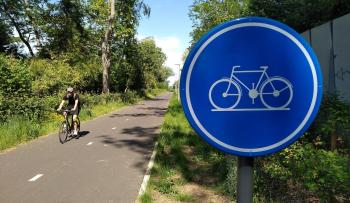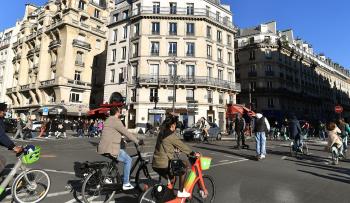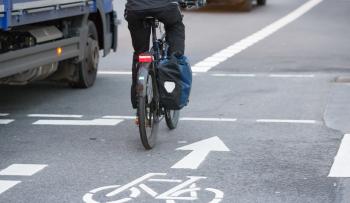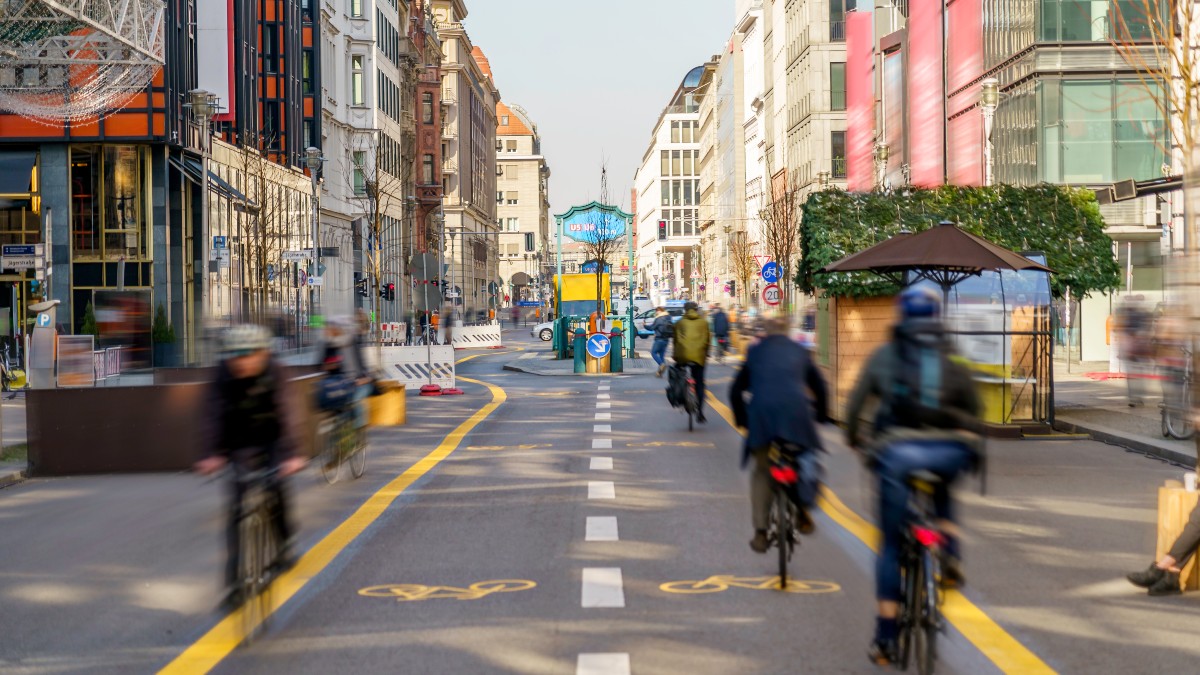
New survey: People cycle most where they feel it’s safe
New global survey from Ipsos shows that people around the world generally have a positive attitude towards cycling, but most prefer to cycle where they feel it’s safe.
A new global survey by multinational market research firm Ipsos, undertaken for the occasion of the upcoming UN World Bicycle Day, finds that a large majority of people across 28 countries consider cycling important for the reduction of carbon emissions (86% on average) and in the reduction of traffic (80%).
The prevalence of cycling for day-to-day mobility is highest in countries where it is most widely perceived as a safe mode of transportation, such as the Netherlands, China and Japan. Indicating continuing challenges for cycling planning and policy, half of the global respondents said that cycling in their area is too dangerous. In most countries surveyed, a solid majority of citizens are in favour of giving bicycles priority over automobiles in new infrastructure projects.
Cycling is the most common mode of transportation for short local trips in the Netherlands (45%) and China (33%) and is also widely used in Japan (27%), India (21%), Germany (21%), and Belgium (20%). As many as 30% of adults in the Netherlands, 22% in China and India, and 20% in Sweden report riding a bicycle to get to their place of work or education. In contrast, only 4% in Canada and 5% in South Africa, the United States, and Great Britain do so.
The proportion of cyclists does not differ greatly among major demographic groups. The prevalence of weekly cyclists is only slightly higher among those who are male, younger, urban, more affluent, and highly educated than it is among those who are not. However, one group stands out: business decision-makers. On average, 55% of them ride a bike at least once a week vs. 35% of all adults.
Large majorities in all countries agree that cycling plays an important role in the reduction of carbon emissions (from 94% in Peru and China to 77% in Germany) and the reduction of traffic (from 94% in Peru to 62% in the U.S.). Bicycles are viewed favorably in all countries (from 93% in Poland to 64% in Great Britain), as are e-bikes (from 84% in India to 57% in Great Britain).
In this context, twice as many agree as disagree (64% vs. 36%, on average per country) that new road and traffic infrastructure projects in their area should prioritise bicycles over automobiles. Support is higher than average in all emerging countries surveyed. The only countries where fewer than 50% agree are Canada, the U.S., Australia, Japan, and Great Britain while opinions are evenly split in Belgium and Norway.
Support for prioritising bicycles in infrastructure prevails where large majorities agree that “cycling from one place to another in my area is too dangerous”, including all countries surveyed across Latin America and Southern Europe as well as Malaysia and Saudi Arabia. The survey also gives another strong indication for policy makers in the EU and elsewhere to invest heavily in safe, fast, and convenient cycling infrastructure in order to increase cycling levels: the results shows a correlation between perceived safety and cycling levels – where people feel safer on their bikes, they cycle more.
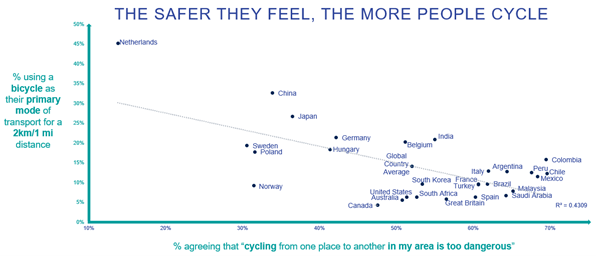
The findings come from an Ipsos survey conducted in March and April 2022 among 20,057 adults in 28 countries around the globe. You can find the full results here.
Contact the author
Recent news!
Contact Us
Avenue des Arts, 7-8
Postal address: Rue de la Charité, 22
1210 Brussels, Belgium

